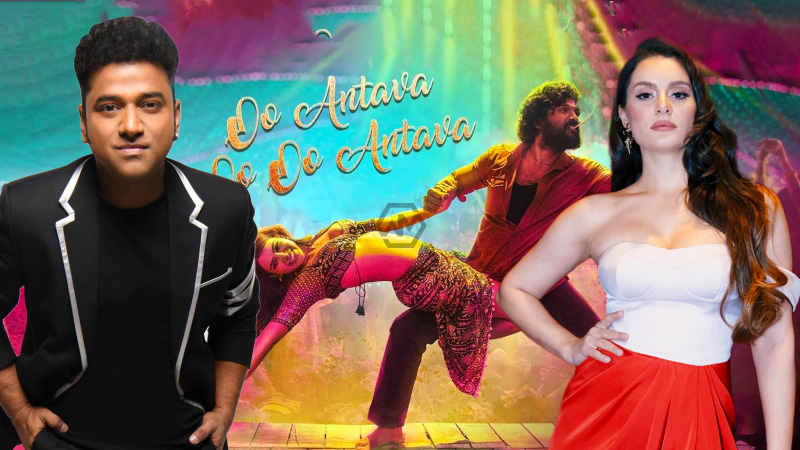- Devi Sri Prasad accuses Turkish singer Atiye of copying his hit track Oo Antava.
- The composer is considering legal action for alleged copyright infringement.
- Fans worldwide are comparing the two songs and debating originality.
Indian music composer Devi Sri Prasad, popularly known as DSP, has voiced concerns over what he describes as a blatant case of plagiarism involving his 2021 hit Oo Antava from the film Pushpa: The Rise.
Despite his disappointment, DSP acknowledged the incident as proof of Telugu music’s expanding global resonance. He noted that Oo Antava had found audiences beyond India and was now inspiring—or being replicated by—international musicians.
Cross-Border Controversy: Turkish Pop Track Sparks Copyright Storm Over Indian Hit ‘Oo Antava’
Atiye, a prominent Turkish pop artist, released Anlayana earlier this year, a song that gained moderate popularity within her domestic market. But it wasn’t until Indian fans began comparing its beat and melodic flow to Oo Antava that the track drew global attention. Several social media users and music analysts have compiled mash-ups showcasing the uncanny similarities, prompting heated online discussions about artistic inspiration versus outright copying.
Legal experts note that international copyright disputes in the music industry are becoming increasingly common due to streaming platforms dissolving regional barriers. DSP’s assertion that he may take legal action could set a precedent for Indian composers seeking to safeguard their work on a global stage. While no formal complaint has been filed yet, the possibility of cross-border litigation looms large.
Interestingly, this isn’t the first time Indian songs have allegedly been mirrored by international artists. Similar controversies have arisen involving tracks from Bollywood and South Indian cinema being echoed in K-pop, Middle Eastern pop, and Western EDM. The recurring pattern has intensified calls for stronger global copyright protections for Indian music creators, especially as regional songs gain massive digital traction.
Fans of Pushpa and DSP have shown overwhelming support on social media, not only expressing outrage but also pride in Telugu music’s international influence. Some see the controversy as a “backhanded compliment,” demonstrating how far Indian pop culture has travelled. Still, many argue that admiration should come with acknowledgment and licensing, not silent appropriation.
The Oo Antava controversy has reignited crucial conversations about global artistic integrity, emphasizing the need for respectful collaboration over imitation.
“Imitation is the sincerest form of flattery that mediocrity can pay to greatness.” – Oscar Wilde



